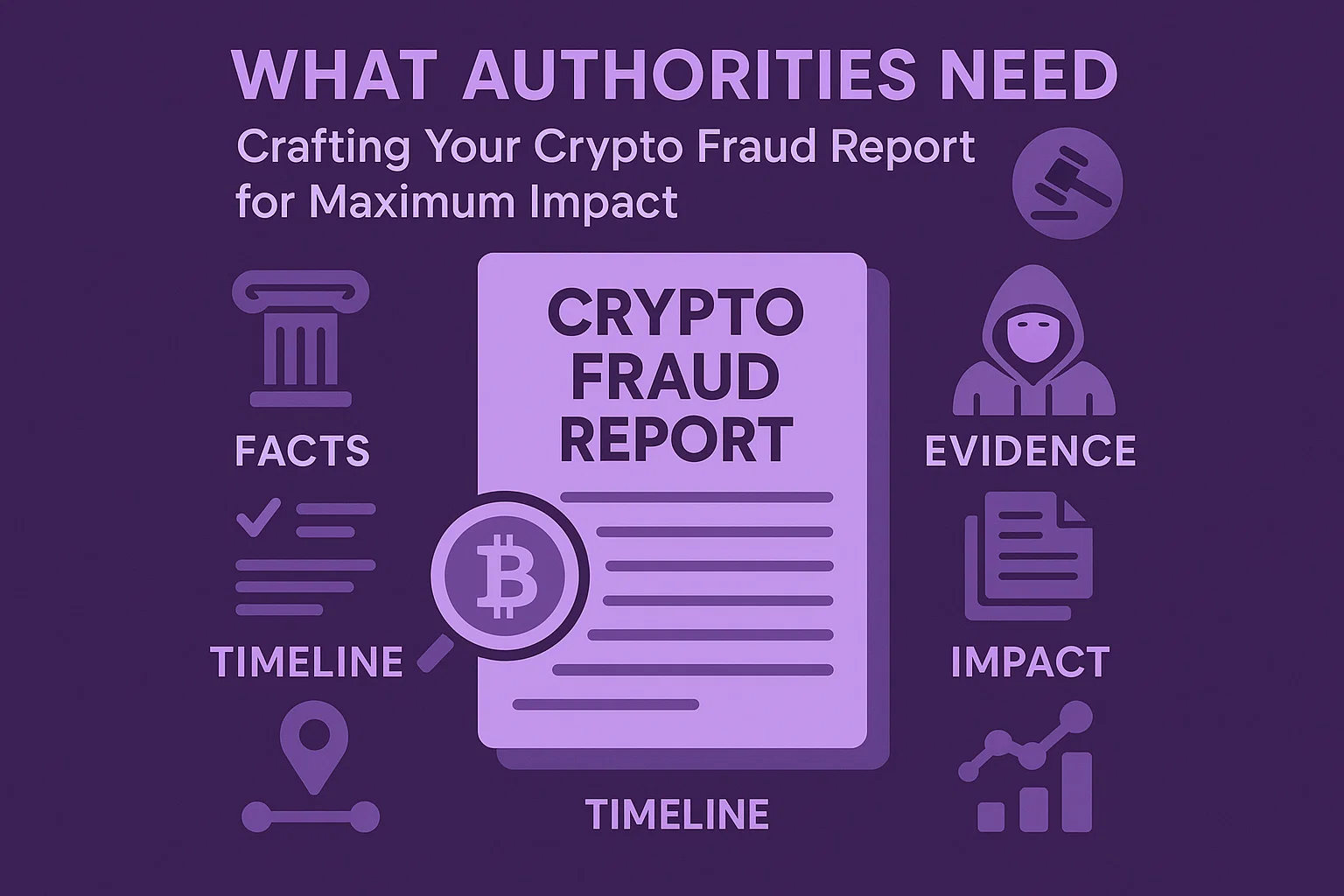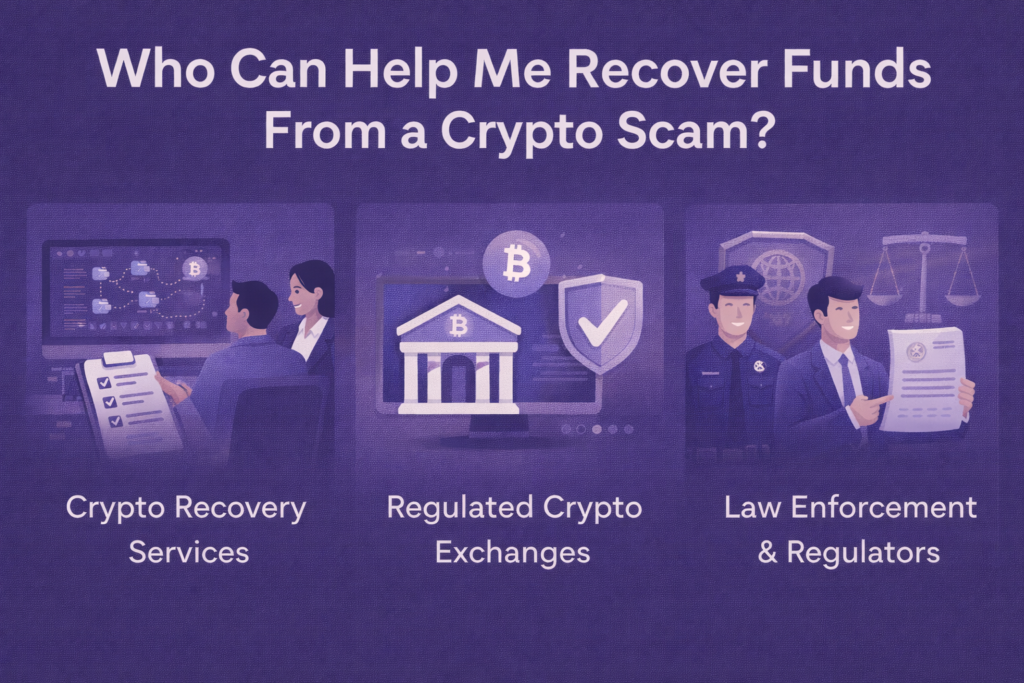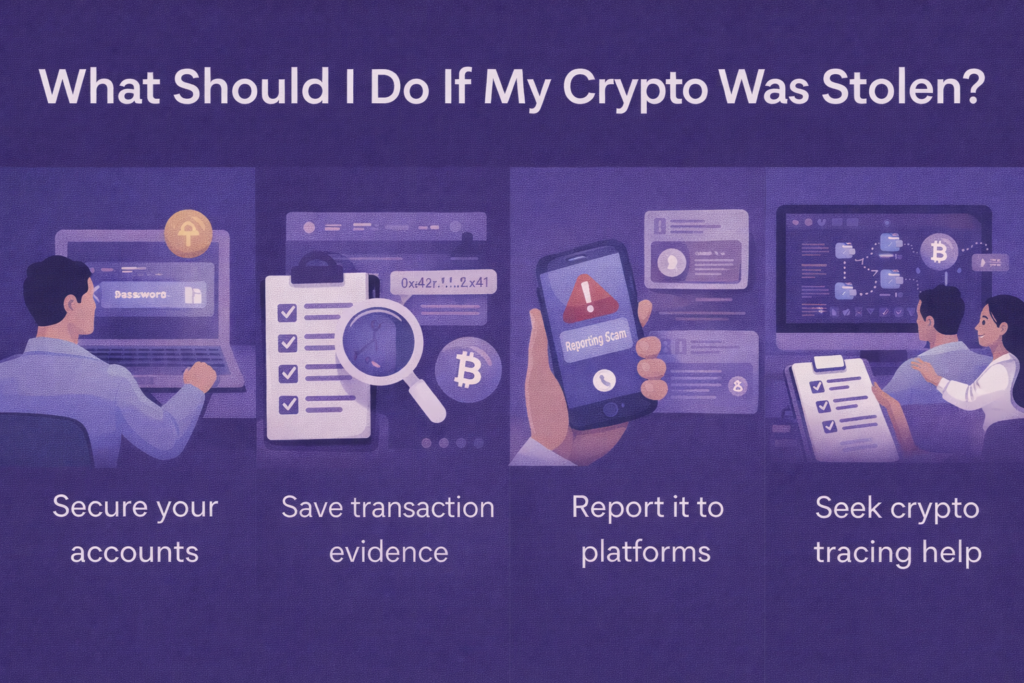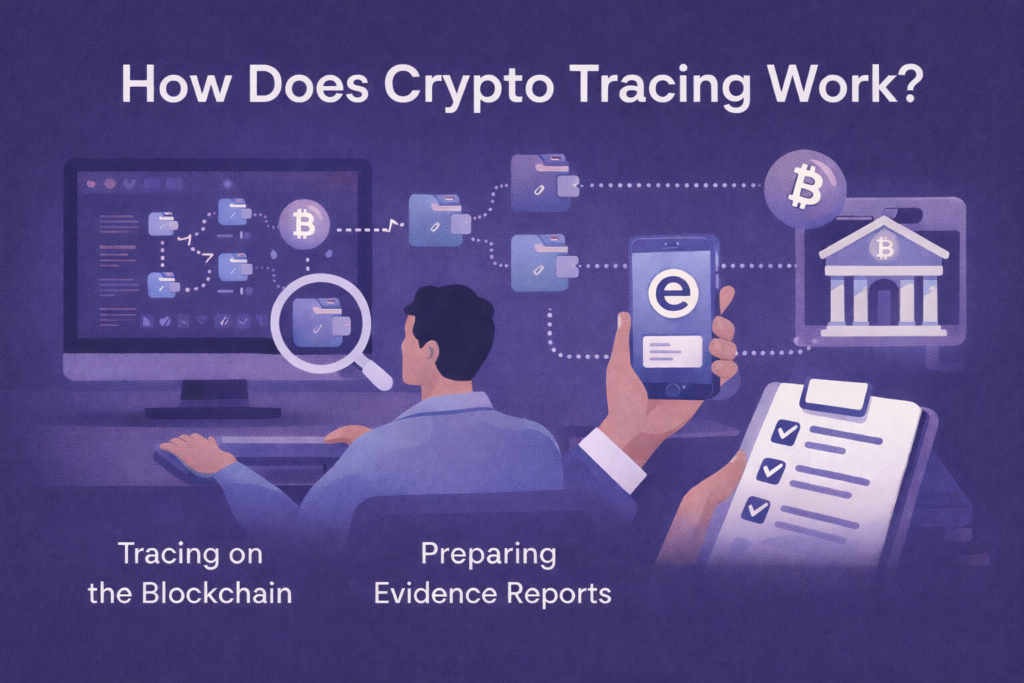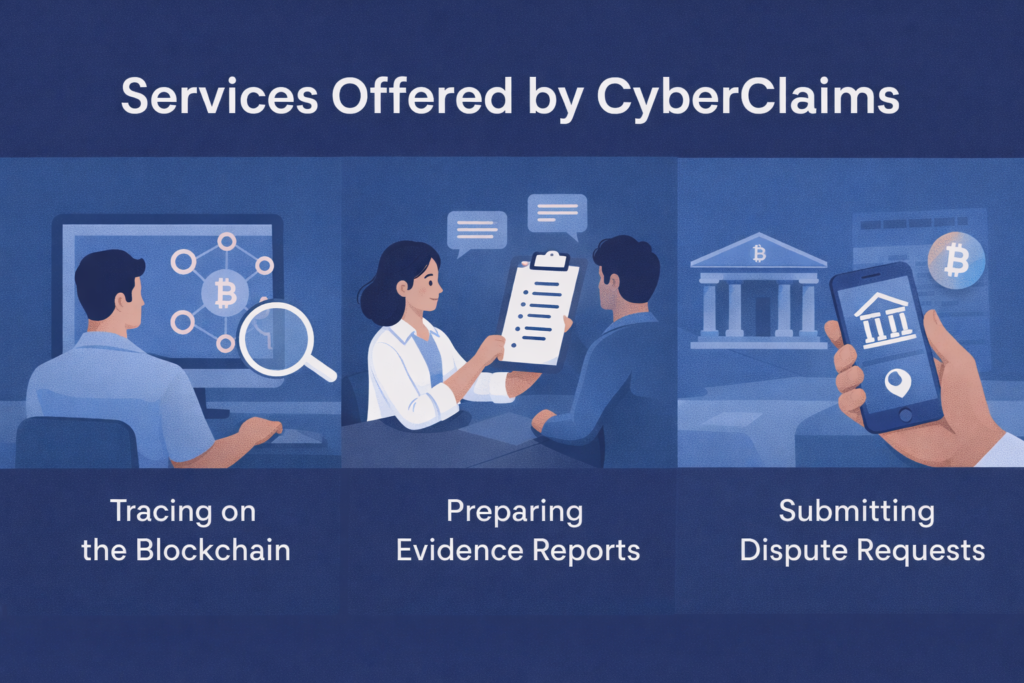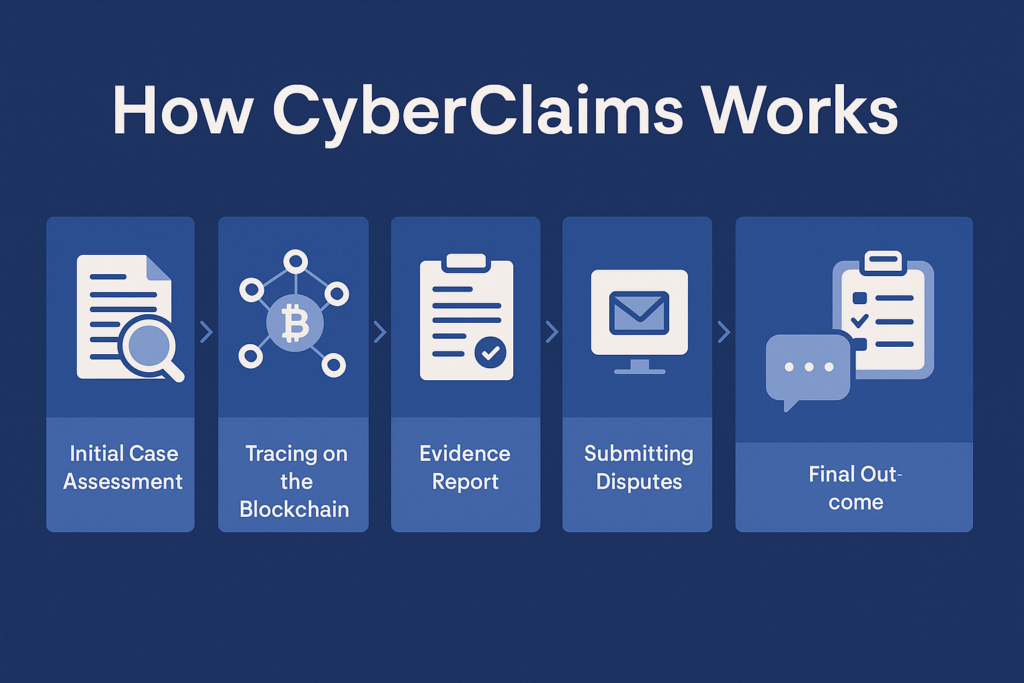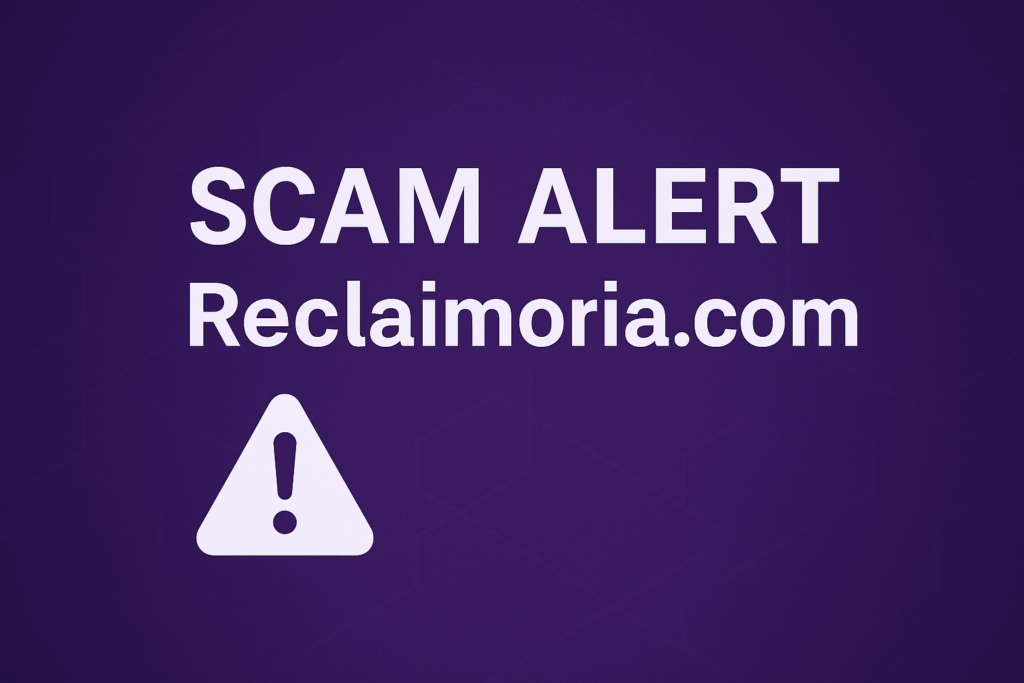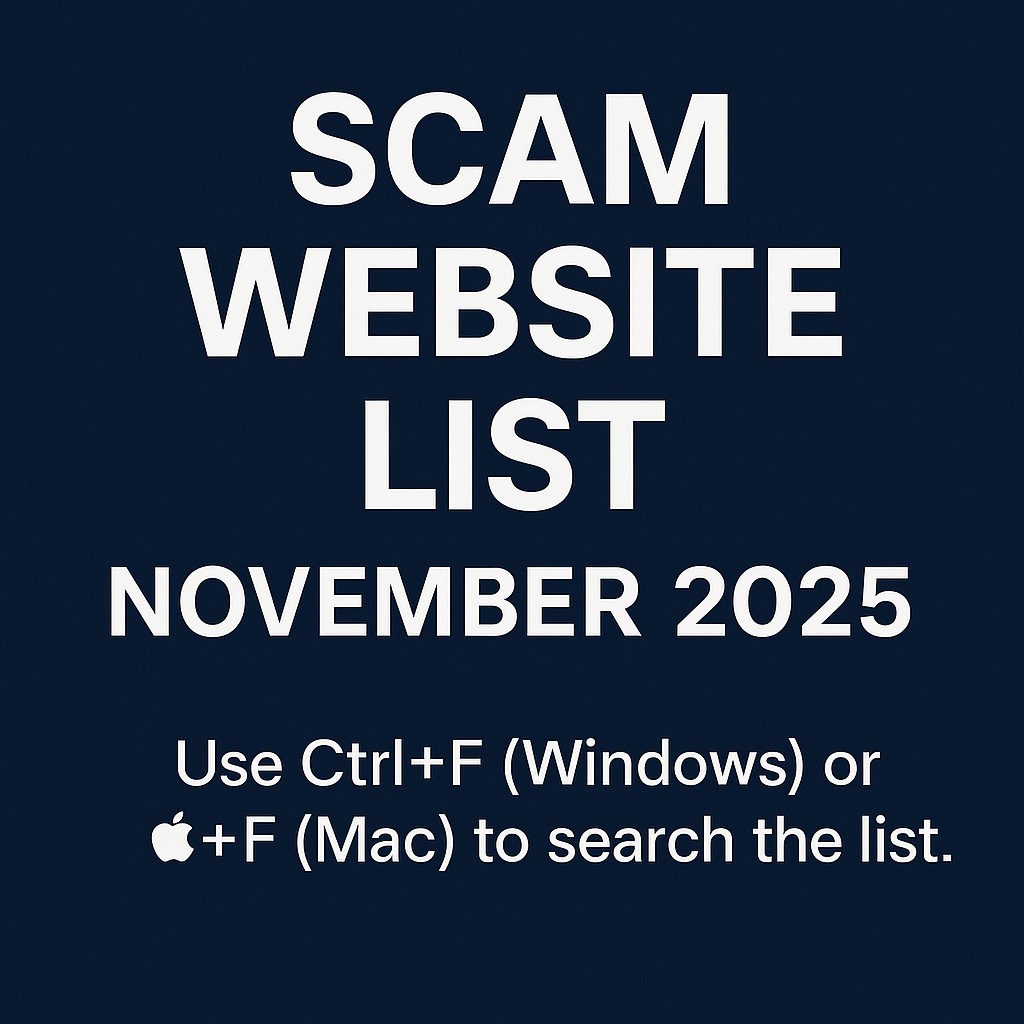When you’ve been scammed out of your hard-earned cryptocurrency, your primary, overriding goal is to get help and recover your losses. Reporting the incident to the right authorities – be it law enforcement, financial regulators, or specialized cybercrime units – is an absolutely crucial step. However, have you ever wondered what exactly these bodies are looking for in a crypto fraud report? It’s more than just lodging a complaint; it’s about crafting a report with maximum impact to truly move your case forward in the realm of digital asset fraud.
Understanding the Authorities’ Perspective on Crypto Fraud Investigation
Investigators, whether they are in national police forces, FBI, Interpol, or specialized financial crime units, are seeking actionable intelligence. They are dealing with a staggering volume of cybercrime help requests and need to quickly identify cases with sufficient evidence to warrant further investigation. A compelling report isn’t just about sympathy; it’s about providing a clear, concise, and verifiable narrative that:
- Outlines the scam’s mechanics.
- Identifies the perpetrators (where possible, even by alias or digital footprint).
- Provides a traceable financial trail for bitcoin recovery or ethereum scam funds.
A report that’s vague, disorganized, or lacks crucial details is incredibly difficult for them to act upon, no matter how sympathetic they are to your situation as a scam victim. Without the right information presented in the right way, your case risks becoming just another statistic.
To create a report with maximum impact for crypto fraud recovery, authorities typically need the following key elements:
- A Chronological Timeline of Events: This is fundamental. Provide a step-by-step account of everything that happened, from initial contact with the scammer (how you met them, e.g., social media, dating app, email) to the exact moment you realized you were scammed and lost funds. Include dates and times for every significant interaction and transaction. This helps investigators reconstruct the fraud.
- Specific Identifiers for Scammers and Their Tools:
- Scammer Aliases/Names: Any names, usernames, or pseudonyms they used.
- Contact Information: Email addresses, phone numbers, social media handles (e.g., Telegram ID, WhatsApp number), website URLs, even IP addresses if you managed to capture them.
- Wallet Addresses: The specific cryptocurrency wallet addresses (e.g., Bitcoin, Ethereum, USDT) that you sent funds to. These are critical for blockchain tracing.
- Comprehensive Proof of Communication: Every piece of interaction is evidence.
- Screenshots of Chat Logs: From messaging apps, dating apps, social media DMs. Ensure the screenshots include timestamps and the scammer’s username.
- Email Correspondence: Full email headers (if possible) are useful for tracing.
- Audio/Video Recordings: If you had calls with the scammer, and you recorded them (legally, if applicable in your jurisdiction), this can be powerful evidence.
- Verifiable Proof of Transaction: This is where the financial investigation begins.
- Blockchain Transaction IDs (TxIDs/Hash): The unique string of characters identifying each transaction on the blockchain. Provide direct links to these transactions on public block explorers (e.g., Etherscan.io, Blockchain.com).
- Source of Funds: Where did the crypto you sent originate? (e.g., your personal wallet, a centralized exchange like Binance, Coinbase). Provide transaction records from your exchange account or wallet.
- Amount and Type of Crypto Lost: Specify BTC, ETH, USDT, etc., and the exact quantity.
- Fiat Currency Conversion: If you used fiat currency (USD, EUR, AUD) to buy crypto before sending it to the scammer, include bank statements or credit card records showing these purchases.
- Proof of Loss: Clearly state the total amount of cryptocurrency lost and its approximate value in fiat currency at the time of the loss.
The clearer, more comprehensive, and better-organized your report, the higher the chance it will lead to meaningful investigation and potential action in your crypto recovery efforts. This level of fraud documentation is what moves your case from a simple report to an actionable file.
Cyberclaims: Bridging the Gap Between Victim and Authority for Online Scam Evidence
We understand that compiling such a precise and comprehensive report can be incredibly overwhelming, especially when you’re under immense emotional and financial stress from being a scam victim. That’s where Cyberclaims steps in. We act as your expert guide, transforming your raw evidence and confusing digital footprints into a professional, comprehensive package tailored precisely to the needs of authorities investigating cybercrime help and digital asset fraud.
Our team possesses the specialized expertise to help you:
- Structure Your Narrative Effectively: We help you tell your story in a clear, chronological, and impactful way that resonates with investigators.
- Extract and Verify All Critical Technical Details: From ensuring accurate blockchain transaction IDs to identifying correct wallet addresses, we help you get the technical details right.
- Organize Screenshots and Communications Logically: We turn a folder of scattered images into a well-presented appendix of evidence.
- Format Your Entire Submission to Meet Official Requirements: We ensure your report looks professional and is easy for authorities to digest, increasing its priority.
Don’t leave your crypto fraud recovery to chance. Let Cyberclaims help you present a compelling case that authorities can’t ignore.
Ensure your crypto fraud report has the maximum impact it needs for investigation. Contact Cyberclaims at www.cyberclaims.net for expert guidance on fraud documentation and reporting crypto scams effectively.
